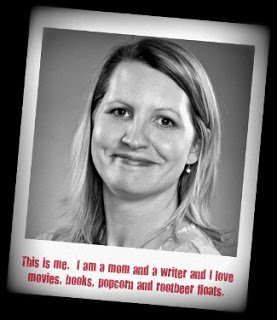Since I met Julianne Harvey at a writing event, I’ve followed her blog as she’s written about chasing her writing goals and working through some personal struggles. She has organized writing retreats and helped create spaces for other writers in the community to focus on their own writing, launched a new website, and released a children’s book. Now she’s written an eBook, Authentic = Happy: A Guide to Dismantling Your Disguise, about being true to yourself and living authentically.
 (This post contains affiliate links; as an Amazon associate, I earn from qualifying purchases.)
(This post contains affiliate links; as an Amazon associate, I earn from qualifying purchases.)
Authentic = Happy
Julianne points out that when we live without disguises, we are happier. Most of us have disguises—masks we put on to please those around us or to keep from getting hurt—but it takes a lot of effort to maintain those disguises. Sometimes, in keeping track of all the masks we wear, we lose sight of who we really are (or who we want to be). And when we are trying to be someone we aren’t, we won’t be happy.
In Authentic = Happy, Julianne presents five steps for letting go of those disguises and finding ourselves.
As I read Julianne’s words, I found myself nodding and remembering my childhood and teenage years. I used to think that if I could be the perfect daughter, my parents would love me more (and be happier themselves). If I could be the perfect friend, I would have more friends. The problem was that I often tried to be like my friends instead of being myself. When I reached university, I found new friends. We all had different majors, different backgrounds, different opinions on a lot of things—but as I hung out with them, I found I could be myself and still be accepted.
 The one thing I wanted from Julianne’s book was more examples like that. Authentic = Happy is full of concrete steps and advice, but I wanted some personal experience—a few stories that would help me picture those steps in action and encourage me to apply them.
The one thing I wanted from Julianne’s book was more examples like that. Authentic = Happy is full of concrete steps and advice, but I wanted some personal experience—a few stories that would help me picture those steps in action and encourage me to apply them.
At the end of Authentic = Happy, Julianne includes some Group Discussion Questions. Reading this book with a couple of close friends who can encourage you in the journey would be an excellent idea. The questions could also be used in a personal journal.
Authentic = Happy is a short, quick read available on Smashwords or Amazon. For more information about Julianne, check out her website.
More about Julianne Harvey
Julianne Harvey is an author, speaker and nurturer from South Surrey, BC. She has four self-published books and is at work on her first YA novel. Julianne holds a certificate in Counseling Skills and is an award-winning student at Kwantlen Polytechnic University, pursuing her BA in Creative Writing. She is a background performer in Vancouver’s film & TV industry and manages her daughter’s acting career. Simplicity, vulnerability and authentic connection are her biggest passions. Authentic = Happy was her first book.
Find out more about Julianne and her writing on her website. You can also read my interview with Julianne.
Do you agree with Julianne’s assertion that authenticity and happiness are linked?

7 Comments
Thanks for your comment, Nat! I’m happy to provide you with a copy of the e-book. I’ll let Bonnie figure out the best way to get it to you. I’d love to know what you think when you are done reading it! 🙂
Nat – nope, you’re not too late! You’re the lucky winner! 🙂
I very much agree with the sentiment that authentic = happy. I think it also equals free, secure, (more) confident. Would love to win a copy of the ebook if I’m not too late! 🙂
Julianne – it is true that everyone’s journey is different. I like your idea of a companion book with stories to encourage people on their own journeys to authenticity. 🙂 One thing I like about John and Stasi Eldredge’s books is that they use a lot of examples from popular movies to illustrate what they are talking about; it helps me have a concrete picture of an abstract concept. But maybe that’s just the way I learn. 🙂
I think I’m also hesitant to include too much personal information in the book because my authenticity journey will be different from yours or anyone reading the book. I don’t want people to feel there is a specific way to be authentic. It tends to be an emotional topic for people, brimming with vulnerability, so I intentionally chose to keep it more neutral in tone.
I’m hoping to supplement the “guidebook” nature of the e-book with speaking engagements, blog posts and the authenticity challenge discussion forum on my website with more personal stories.
As a result of your review, I’m now considering a companion e-book with personal authenticity journey stories to go with the guide. Thanks for the idea! 🙂
Julianne – I guess it comes down to a question of audience, then… regular readers of your blog would immediately know what you’ve talked about there and how it relates to the book. I only pop in occasionally these days, so I haven’t seen that as much. Interesting things to consider when writing a book and a blog! 🙂
Thank you for the review! I think I didn’t include a lot of personal information because I blog so regularly and in some emotional depth about these issues. I wanted to keep it more of a guide, applicable for anyone, but it’s something to consider for future editions. 🙂
I look forward to giving a couple books away to your readers!